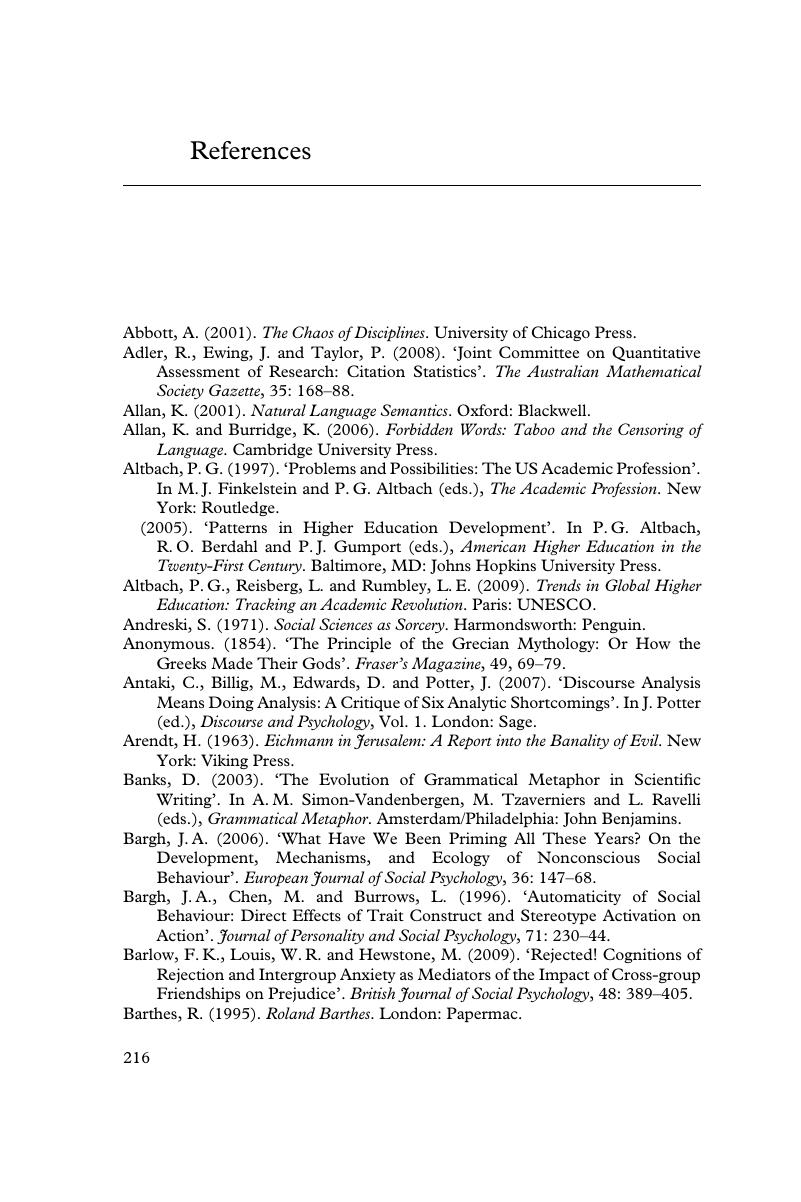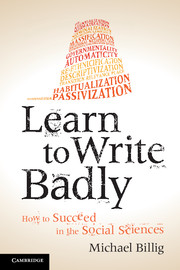Book contents
- Frontmatter
- Contents
- Acknowledgements
- 1 Introduction
- 2 Mass publication and academic life
- 3 Learning to write badly
- 4 Jargon, nouns and acronyms
- 5 Turning people into things
- 6 How to avoid saying who did it
- 7 Some sociological things: governmentality, cosmopolitanization and conversation analysis
- 8 Experimental social psychology: concealing and exaggerating
- 9 Conclusion and recommendations
- References
- Index
- References
References
Published online by Cambridge University Press: 05 June 2013
- Frontmatter
- Contents
- Acknowledgements
- 1 Introduction
- 2 Mass publication and academic life
- 3 Learning to write badly
- 4 Jargon, nouns and acronyms
- 5 Turning people into things
- 6 How to avoid saying who did it
- 7 Some sociological things: governmentality, cosmopolitanization and conversation analysis
- 8 Experimental social psychology: concealing and exaggerating
- 9 Conclusion and recommendations
- References
- Index
- References
Summary

- Type
- Chapter
- Information
- Learn to Write BadlyHow to Succeed in the Social Sciences, pp. 216 - 230Publisher: Cambridge University PressPrint publication year: 2013



